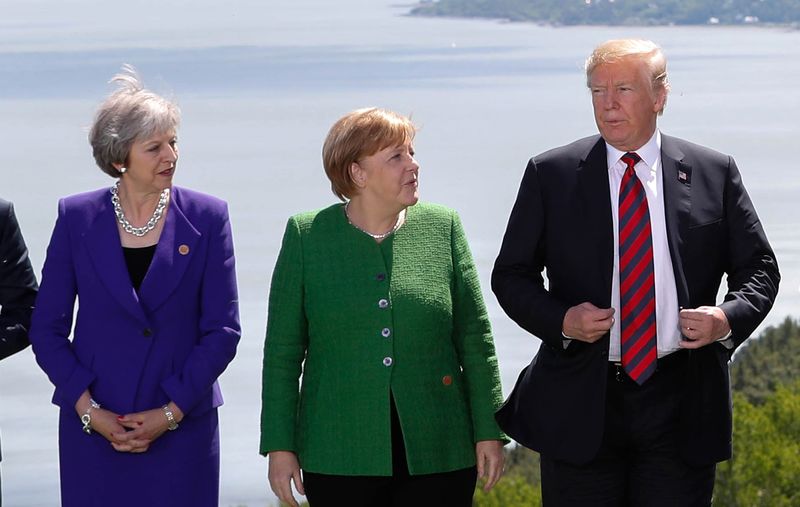By William James
LA MALBAIE, Canada (Reuters) - Prime Minister Theresa May on Friday warned both U.S. President Donald Trump and the European Union of the dangers of entering a tit-for-tat trade war over tariffs, urging both sides to instead focus on China's excess steel production.
The Trump administration last week imposed tariffs on steel and aluminium imports from Canada, the EU and Mexico, prompting retaliation and casting a shadow over a G7 summit in Canada that appeared likely to end without consensus.
A senior UK official said May was using a G7 discussion on the global economy to make her argument.
"Along with a number of other colleagues she believes the U.S. decision to impose tariffs on steel and aluminium imports from some of its strongest allies is deeply regrettable," said the official, who spoke on condition of anonymity.
"If we can't find a way back from the current situation quickly, countermeasures from the European Union will be unavoidable."
Trump has invoked a 1962 trade law to erect protections for U.S. steel and aluminium producers on national security grounds, amid a worldwide glut of both metals that is largely blamed on excess production in China.
According to the official, May would tell the summit that "it is worth stepping back to recall that the West, led by the U.S., devised the global rules-based system to enable our citizens to benefit from globalisation while providing reassurance that we would all play by a common set of rules."
Whilst Britain has spoken out strongly against the U.S. tariffs, May has also been quick to point out that any EU retaliation must be proportionate and within existing rules.
"Rather than imposing tariffs on each other we should instead be increasing pressure on China to reduce its excess steel capacity," the official said.
The British stance reflects May's need to keep favour with the Trump administration as she looks for a bilateral trade deal to soften the economic impact of leaving the EU, and her island nation's post-Brexit dependency on free commerce.
Asked whether she backed an EU plan to set its own duties of 25 percent on 2.8 billion euros (£2.4 billion) of U.S. exports, the official said the measures had not been finalised and that it was still being worked upon.

"If you tax trade through tariffs there's no guarantee that domestic sources will replace it, plus the loss of trade undermines competition, it reduces productivity, it removes the incentive to innovate, and makes everyone poorer," the official said.